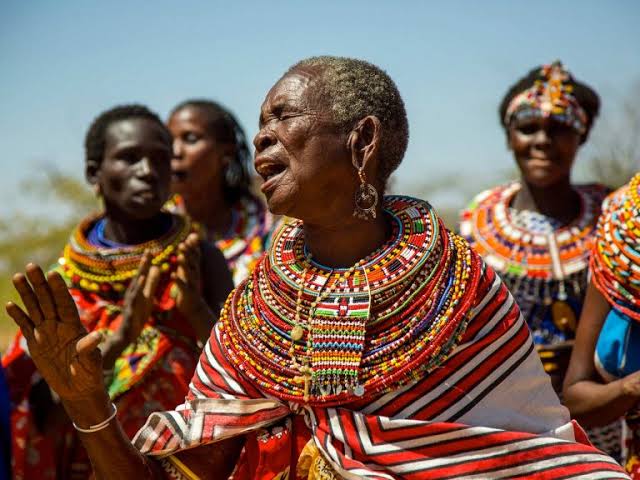
MONOCHROMACY AND YESTERDAY’S WOMEN || Cosse
It was the dawn of enlightenment; the dusk of insanity. The age of liberalism; the season of bondage. We were happy school girls; we were sad niggers. God was black; no, he was British. We were Americans; we were cultural half castes. We loved our skin color; we loathed it. We were wrong. We were not born to spend the rest of our lives proving we were also humans our mothers had told us in the morning.
We had believed them then.
It was one of those few occasions when we were glad to be wrong. So we had enjoyed ourselves, forgetting everything except the color of our skin. No! we couldn’t forget that. How could we? Still we knew we should have. Why shouldn’t we? Racism had become old fashioned, extinct. Yes, long ago. How could it not? It would have worn itself out faster in the absence of hate and Racists didn’t hate you. No they didn’t. They only make sure that you spend the rest of your life understanding that you are black. You forgetting that was an unaffordable luxury. The beginning of unreality.
“We were not born to spend the whole of our lives proving we were humans too”. So we had spent the better part of the morning wondering if it were possible or even necessary to prove the obvious. Our existence was a fact. That we were humans was quite obvious too. Except… …. …. …. ….. our poor mothers were going senile again.
Time passed as our infantile shadows lengthened with the sun’s emergence and body languages once unspoken, unnoticed — formerly veiled as a rather unrevealing means of communication — began undressing themselves. Cloaked in understanding ourselves, we were finally awoken as our personality waned, charred. It soon became part of everything we had to fight against for our own personal survival.
Soon the little colored girls once wearing smiles that betrayed childish hopes in an unseen glorious future had vanished. What became of our ashes had soon embraced the bitter reality of our whole lives; that every day, wherever we were, we were inside some callous monster and our lives had to be planned therein. An independent existence outside its bowels was foolish optimism. Try hard as we might, we soon concluded that we would never fit into this pristine society. At best, each of us would have been a tragedy.
Neither of us at this point in time, if asked, would deny the fact that we felt life would have been a hell lot easier if we had been male or white. But mostly just white.
The sun soon returned to the west and by dusk we were ladies. Ladies oblivious to where their lives were headed yet had a dream but still didn’t know what else could be done. Like ones reflection in the mirror, you know it is you; still you know it isn’t you. Unsurprisingly, in a short while we mostly wanted to be writers. We dreaded writing. Still we realized that people’s life didn’t just change inexplicably. We felt it the only aperture to let off steam. So we wrote. Like tortured savages we wrote!
We wrote dreadfully, lamenting about how our wounds though deep were not fatal enough to keep us mute. We wrote intelligibly. We wrote senselessly, like drugged idiots. We wrote because behind every little headway arrived at by each angry black activists stood legions of angrier, emotionally wounded raving folks who wouldn’t have backed out from writing either — despite fickle results and the understanding that they were the dead. But it didn’t matter anyway and anymore. Our views — gloomy and darkly coated like its owners — when not out rightly discarded were labeled racial stereotypes.
You probably read it up in some cheap start-up magazine desperate enough to risk entertaining our controversial frivolities yourself. You had probably also taken it for granted too as clichéd irrelevancies. A few lines just enough for you to deduce the overall message and you had probably again impatiently flipped through to the next page with a concerned whisper of genuine frustration on what it was with old rhetoric’s and why some wounds never healed fast enough — before proceeding to altogether discard the bitter material any place far from your conscience.
The rays from the first glint of dawn belatedly whispers to us what we should have known long ago — that dreams don’t always come true. Still in defiance we had attempted sleeping once again but it was too late! We had grown. We had grown into women, amidst the cloud of pain in our spirit. Women who were — with the dignity of banished princesses — still struggling to be acknowledged. Not successful. Just accepted as fellow warriors in life’s protracted battles. Important battles where there were no such things as winning or losing. No eventual victory or defeat. The strong insane joy from the sweet sound of surrender of sweaty vanquished enemies marred, snatched, stolen by the hesitant clumsiness of blind warriors. Color blind warriors.
If we had been asked again at this point if we thought being male or white would have made us happier, we would have responded in genuine puzzlement at what that strange vague word “happy” implied. The meaning contained in that word to us only meant never looking behind or ahead. Just salvaging what was left to be enjoyed or endured of the present. If that was granted then our lives — bereft of meaning as it were (since the present can never deliver meaning) — was happy.
A meaningful life involved effective preparation for a certain future. A certain future!
By noon, we were pregnant for the men that we loved. Not the handsome athletic men the little girls had fantasized about. No. But we loved them still. Soon our little girls, plaiting our black tired hair by the bedside while begging us to pretend we were their babies, began to profess joyfully to us their dreams while we froze in chest constricting horror at the painful semblances. They had with the same joy and adult conviction laughed at our concerns just as we had our mothers. So in silence and horror we had nervously watched them grow.
The sun soon returned westwards and by sunset, they too had suddenly become ladies. Liberal ladies who swore to be anything except like their mothers.
But the sun, few seconds from vanishing into the dark, impatient horizon, had smiled at their futile attempt at evading fate.

